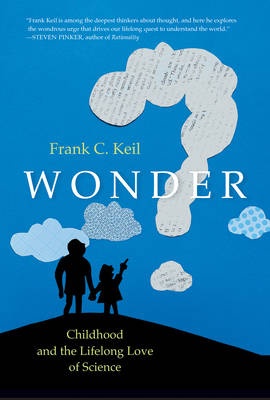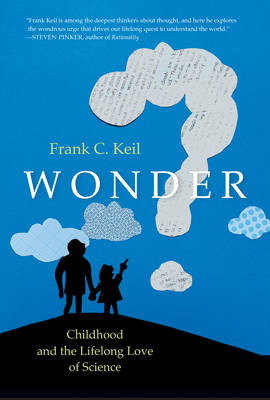
- Retrait gratuit dans votre magasin Club
- 7.000.000 titres dans notre catalogue
- Payer en toute sécurité
- Toujours un magasin près de chez vous
- Retrait gratuit dans votre magasin Club
- 7.000.000 titres dans notre catalogue
- Payer en toute sécurité
- Toujours un magasin près de chez vous
51,45 €
+ 102 points
Description
How we can all be lifelong wonderers: restoring the sense of joy in discovery we felt as children. From an early age, children pepper adults with questions that ask why and how Why do balloons float? How do plants grow from seeds? Why do birds have feathers? Young children have a powerful drive to learn about their world, wanting to know not just what something is but also how it got to be that way and how it works. Most adults, on the other hand, have little curiosity about whys and hows; we might unlock a door, for example, or boil an egg, with no idea of what happens to make such a thing possible. How can grown-ups recapture a child's sense of wonder at the world? In this book, Frank Keil describes the cognitive dispositions that set children on their paths of discovery and explains how we can all become lifelong wonderers. Keil describes recent research on children's minds that reveals an extraordinary set of emerging abilities that underpin their joy of discovery--their need to learn not just the facts but the underlying causal patterns at the very heart of science. This glorious sense of wonder, however, is stifled, beginning in elementary school. Later, with little interest in causal mechanisms, and motivated by intellectual blind spots, as adults we become vulnerable to misinformation and manipulation--ready to believe things that aren't true. Of course, the polymaths among us have retained their sense of wonder, and Keil explains the habits of mind and ways of wondering that allow them--and can enable us--to experience the joy of asking why and how.
Spécifications
Parties prenantes
- Auteur(s) :
- Editeur:
Contenu
- Nombre de pages :
- 336
- Langue:
- Anglais
Caractéristiques
- EAN:
- 9780262046497
- Date de parution :
- 01-03-22
- Format:
- Livre relié
- Format numérique:
- Genaaid
- Dimensions :
- 160 mm x 241 mm
- Poids :
- 566 g







